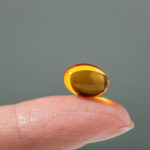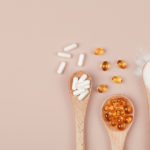By David Blyweiss, M.D., Advanced Natural Wellness
December 14, 2012
- Secrets to squeezing more nutrition out of every bite
- Why the skinny salad is really starving you
- An avocado a day helps keep the doctor away
I’ve always been a proponent of getting nutrition from your food first, before turning to supplements. But with the way food supplies have changed through the last 50 years, it’s just not possible to get all your nutrients from food. My basic recommendations include a good multi-vitamin along with probiotics, and balanced essential fatty acids (the dream “5” adding alpha lipoic acid and acetyl-L-carnitine.)
And I’m hearing from more and more readers who want to get more nutrition out of their food first before turning to supplements.
Completely understandable. And do-able. If you know how to maximize the nutrient content of your meals.
The term you need to know is “bioavailabilty” – which refers to the amount of nutrients absorbed by your system after a meal. Unfortunately, only a fraction of the nutrients we ingest actually make it through our digestive tract. And that percentage often decreases as we get older.
But there are a few tricks to pairing foods so they become more bioavailable. Some you will know, because they are traditional ways of eating. Others may surprise you…
MD Exposes the Hidden Danger to Your Eyes

When your eyesight starts to fail, it's a real problem. Suddenly you can't go to the grocery store... you can't get to the doctor if you have an emergency... you can't meet your friends for dinner…
Your "regular" doctor doesn't have time to keep up with the latest research. And the same goes for eye doctors. They go to school to learn how to fit you for glasses and contacts, but have no way of preventing the damage and loss of eyesight that threatens your freedom and independence.
Let me show you something that explains a LOT about how your eyes work.
In my FREE Special Report, I'll show you a HUGE, untapped resource for your eyes that safely and naturally restores clear, effortless eyesight.
Click here to get started...
I’ll never forget the first time I tried milk in my tea and it curdled instantly. That’s because I never knew you could drink tea without lemon, the way my grandmother taught me!
So I added the milk and the lemon. But I discovered that tea with lemon – a traditional combination – is a healthy one.
A squirt of lemon in green tea can cause 80% of the catechins to remain after digestion. Without the lemon, studies show only 20% of the catechins make it through your digestive system.
This boost may also be why adding lemon and honey to tea is such a popular remedy for colds and virus. There’s no better time for an antioxidant boost than when you’re sick.
Here are some other nutrient-enhancing food facts you might want to know and incorporate in your diet:
To Cook or Not to Cook: Tomatoes are full of lycopene, a powerful antioxidant, even when raw and tossed into a salad. But when cooked, the bioavailability of the lycopene goes up five or six-fold! The same is true of carrots and beta-carotene. The antioxidant power of a cooked carrot is actually greater than that of a raw carrot.
Why Skinny Salads Can Actually Starve You: Hopefully, I’ve busted the no-fat, low-fat myth already – but it seems worth mentioning here again, as well. In the same way some vitamins you take are “fat-soluble” – meaning they require some fat to be absorbed – the vitamins in food also require fat. Which is why it’s a good idea to drizzle oil on a salad, for example. Or, at least, we did… until the fat-free craze replaced the fat in salad dressings with sugar and cornstarch! Stick with olive oil and a squeeze of fresh lemon for the healthiest salad.
The World's Quickest Solution for Ending Prostate and Urinary Misery
This has recently been revealed to be one of the only real breakthroughs in prostate health.
The seeds of a strange fruit (sometimes called "Chinese Apples") hold powerful phytonutrients that are a revolution in prostate health.
In fact, UCLA and Veterans Administration research have now proved this to be true.
Not only that, but it may be the worlds quickest solution for ending prostate misery.
Simply stated, these phytonutrients represent a huge step beyond beta sitosterol, saw palmetto, and other phytosterols alone.
Simply click HERE if you want to have fast prostate relief...restful, uninterrupted sleep...no more constant "urges to go"...enhanced virility...and optimal prostate support for life.
Speaking of Fat: The case for consuming fat extends beyond your salad dressing choice – it affects your health tremendously.
Fat is an essential element of healthy cells, nerves, and tissues – and basically, every system of your body – specifically because of their role in breaking down and absorbing nutrients. Which means the “healthy” fat-free approach that has been popular for years has been doing more harm than good, nutritionally speaking!
Your diet should include a healthy dose of “good” fats, every day. Olive oil, avocados, almonds, sesame seeds, walnuts, and fatty fish such as salmon are all excellent choices. In fact, some doctors, like myself, would encourage you to eat an avocado-a-day – because it helps you absorb more nutrients from all the other foods you’ll eat throughout your day.
Spinach and Orange Juice?: Ok, maybe that suggestion doesn’t get you salivating and running to the fridge. But the theory behind it is solid. There are two types of iron: heme-iron, found in red meat, is readily absorbed, and non-heme iron (found in spinach) which is harder to absorb. Orange juice – or the vitamin C found in any citrus, converts non-heme iron to heme iron, making it easier to absorb. Also, the phenols found in tea and coffee, and the calcium in dairy products, inhibits iron absorption – so you may want to limit those within an hour before or after a meal.
The Miracle of Pepper: A shake of salt and pepper may be one of the most common things we do every meal – and one of the healthiest. So add a few shakes to the above olive oil/lemon juice salad dressing if you like.
Black pepper contains piperine, which increases the bioavailability of many foods. It also enhances the effectiveness of curcumin, (one of the best anti-inflammatory herbs we know) which is often degraded in the gut, and loses much of its power by the time it is digested. Combining black pepper with curcumin enhances the absorption by a whopping 2000%. Black pepper has also shown to increase the nutrient absorption of beta carotene, coenzyme Q10, and certain phytonutrients found in tea.
Now, let me say, for the record, that getting all of your nutrients from food can be a challenge. Depending on your diet, your age, your digestive health – extra supplementing here and there might be the price you pay to avoid getting sick down the road.
Before you ditch your supplements willy-nilly, consider this…
It’s much more effective when your supplement regimen is created by your own lab results and physical signs rather than from the media’s latest breakthroughs and suggestions. Even here, in Advanced Natural Wellness, we want to keep you informed – but by no means should you run blindly out and start taking every recommendation!
Weigh the information against what you know about your own health needs… and then decide what to take and what to leave on the shelf.
The best approach to personalizing your health care is to get tested.
Check your levels of vitamin D, which is critical for your immune system. Get a full thyroid panel if you are over 40 and haven’t. See what your C-reactive protein number is, an important indicator of systemic inflammation that can cause disease.
Here is a list of the tests I start with depending on the results of a “lengthy” history and physical exam.
- CMP(Comprehensive metabolic profile)
- CBC with differential
- Lipid profile which should include Lp (a) and Apolipoprotein A and B
- Hemoglobin A1c
- Fasting glucose/insulin (1& 2 hr Post eating or glucose load also)
- Testosterone (free/total)
- Female hormone panel
- Fibrinogen
- Ferritin
- G6PD
- C- reactive protein
- PLA-2
- Homocysteine
- Thyroid panel (T3.T4,TSH) which includes a TPO (thyroid peroxidase antibodies)
- DHEA-s (Storage form of the hormone)
- GGTP
- CPK
- Whole blood heavy metals
- RBC magnesium (where most of it is located vs. the serum)
- B12 or (methylmalonic acid level) and Vitamin D25 OH or better yet… the Spectracell WBC micronutrient testing (www.spectracell.com) for a more complete profile of which critical nutrients you may be deficient in
- TtG (tissue transglutaminase testing for gluten sensitivity) or better yet the ALCAT food sensitivity test (www.alcat.com which is a more complete and reliable test than IgG food testing and completely different than allergy testing)
- Urinalysis
Consider working with a Functional Medicine physician to understand your internal functioning better.
Food first. That’s always been my motto. Then, maintain your mobility – use it or lose it! And finally, work with your doctor to find out what gaps you might have. This is the most level-headed approach to your health. And the most rare, it seems!






